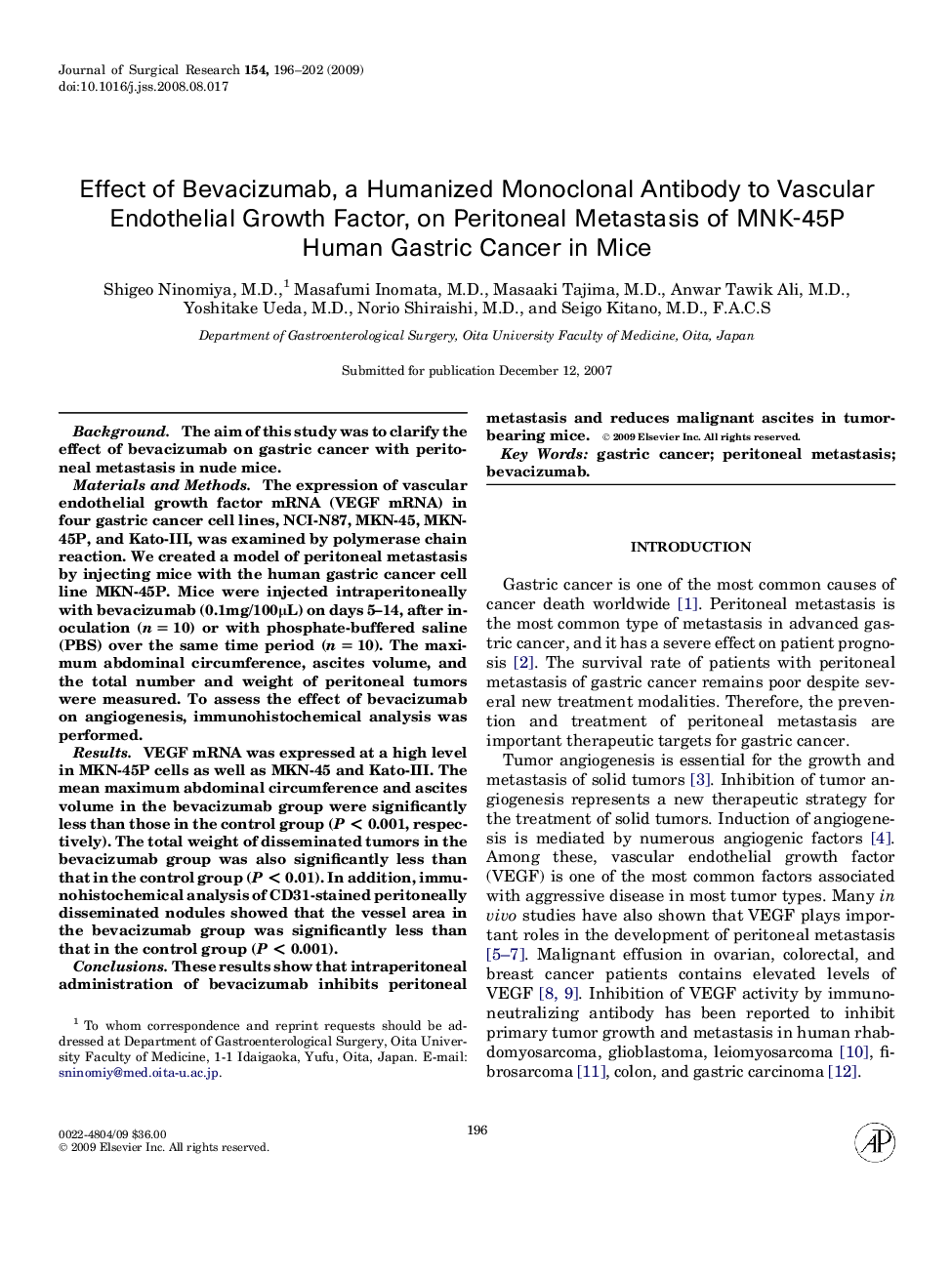| Article ID | Journal | Published Year | Pages | File Type |
|---|---|---|---|---|
| 4303636 | Journal of Surgical Research | 2009 | 7 Pages |
BackgroundThe aim of this study was to clarify the effect of bevacizumab on gastric cancer with peritoneal metastasis in nude mice.Materials and MethodsThe expression of vascular endothelial growth factor mRNA (VEGF mRNA) in four gastric cancer cell lines, NCI-N87, MKN-45, MKN-45P, and Kato-III, was examined by polymerase chain reaction. We created a model of peritoneal metastasis by injecting mice with the human gastric cancer cell line MKN-45P. Mice were injected intraperitoneally with bevacizumab (0.1mg/100μL) on days 5–14, after inoculation (n = 10) or with phosphate-buffered saline (PBS) over the same time period (n = 10). The maximum abdominal circumference, ascites volume, and the total number and weight of peritoneal tumors were measured. To assess the effect of bevacizumab on angiogenesis, immunohistochemical analysis was performed.ResultsVEGF mRNA was expressed at a high level in MKN-45P cells as well as MKN-45 and Kato-III. The mean maximum abdominal circumference and ascites volume in the bevacizumab group were significantly less than those in the control group (P < 0.001, respectively). The total weight of disseminated tumors in the bevacizumab group was also significantly less than that in the control group (P < 0.01). In addition, immunohistochemical analysis of CD31-stained peritoneally disseminated nodules showed that the vessel area in the bevacizumab group was significantly less than that in the control group (P < 0.001).ConclusionsThese results show that intraperitoneal administration of bevacizumab inhibits peritoneal metastasis and reduces malignant ascites in tumor-bearing mice.
